5 Questions with Adult Sleep Consultant, Kelly Murray
August 30, 2021
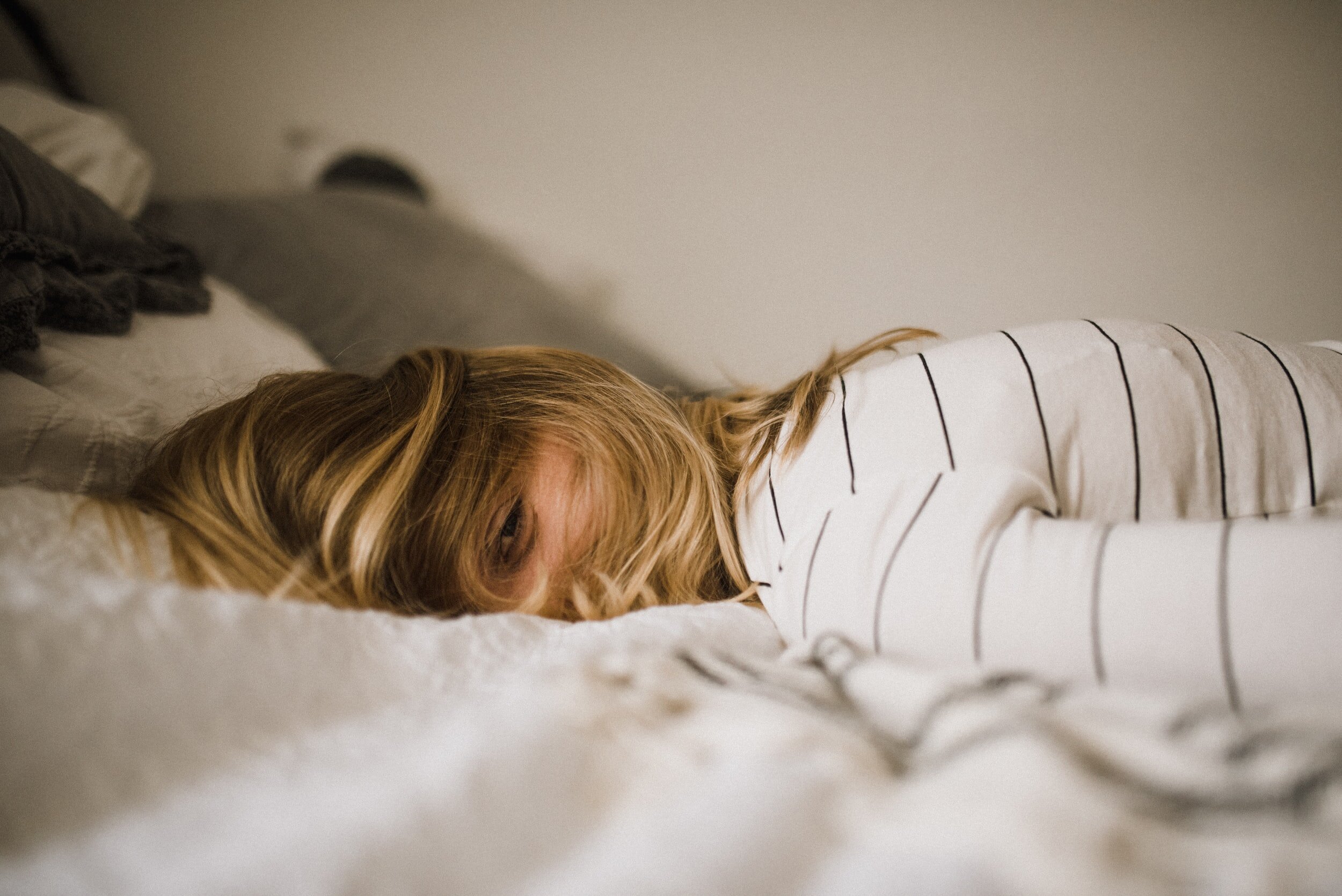
Image via Unsplash
5 Questions with Adult Sleep Consultant, Kelly Murray
Welcome to Season 2 of We Gotta Talk!
I’m literally grinning as I write this; it’s SO fun to be back!
A quick wrap of the past couple of months, because the blog was uncharacteristically quiet. Over here the kids and Andrew and I had a fun summer, and even though I tried to take some time off recording new episodes (that didn’t happen, haha), we are now officially back into the regular swing of things around here.
How We Gotta Talk Works
If you’re new to the WGT family, here’s how the weeks go around here. We take on a topic every week, and dig in on all of the channels. And by all the channels, I mean the live show, the blog, Instagram and of course the podcast feed. Yep, clips and parts on juicy bits of these interviews go just about everywhere. 😉
So on Mondays, stop by the blog here, and you’ll get a post where we introduce the week’s topic and get our 5 Questions answered. (That’s this!)
Then on Wednesday it’s the live show on both Facebook and YouTube. You must stop by when we are live! I can see your comments in real time, and we have so much more fun when you’re there with me and the guest!
And on Thursdays, the podcast episode comes out. So if you missed the show, or you just want to listen again, it’s always right there, on the feed.
And of course on Instagram I compile bits and pieces of all of this throughout the week, so be sure to always check in there.

Now that you know how things work, let’s dig into the first topic of the new season—sleep!
Everything You Need to Know About Getting Good Sleep
As parents, we dedicate tons of brain power and time to making sure our babies and kids sleep well. Literal industries have popped up around it.
But what about us?
Since it’s just as important for you to get your shuteye as it is for kids, I’m dedicating the first week of WGT to how to get better sleep—a concept that sounds simple, but is anything but.
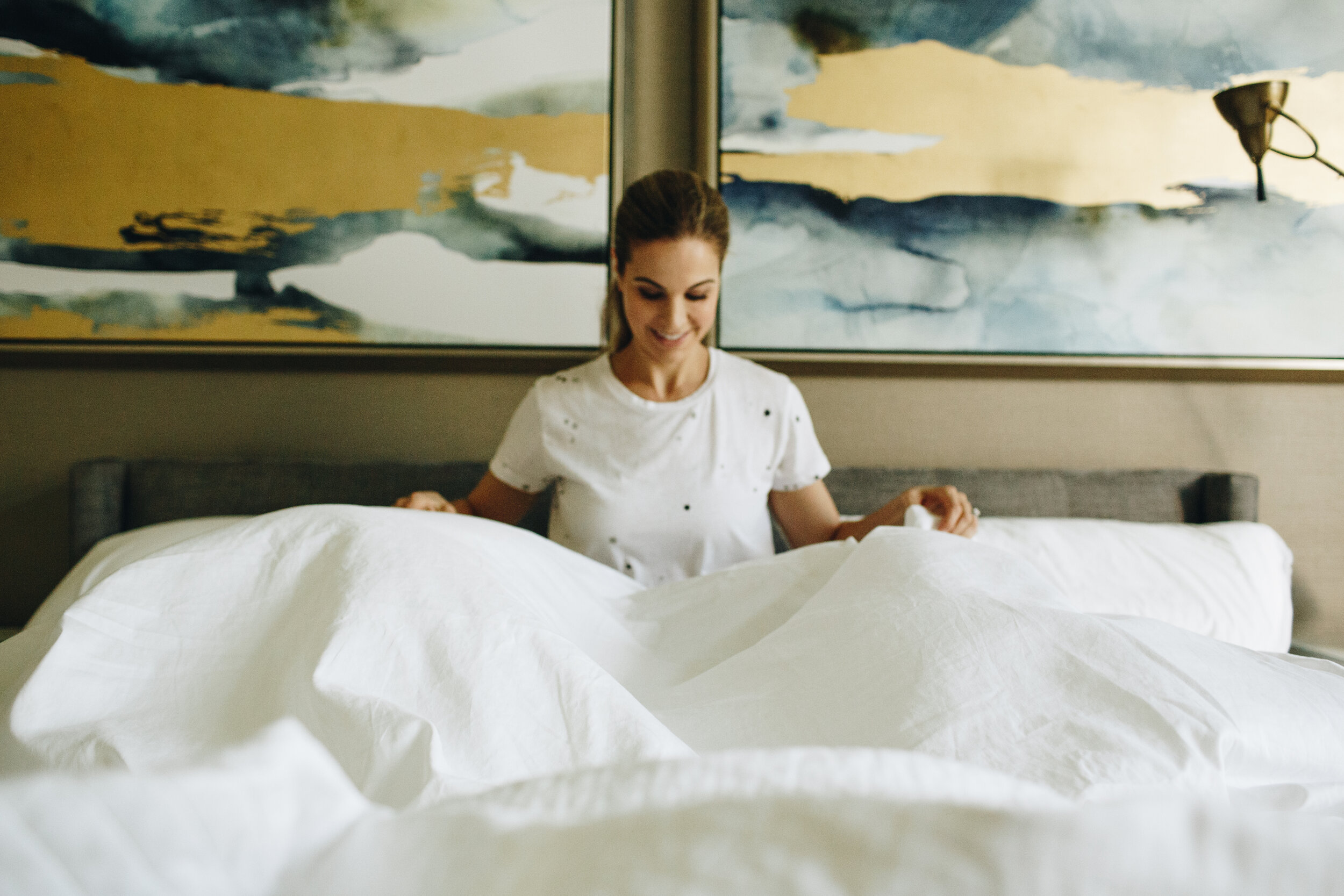
Our Sleep Expert
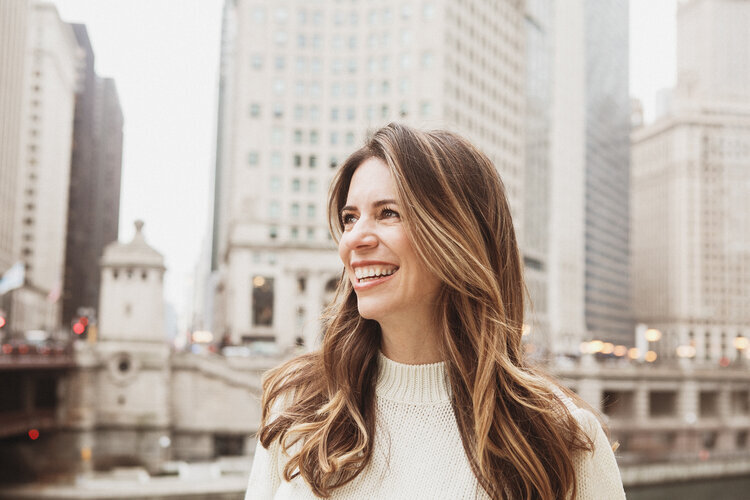
Hi, Kelly!
Kelly Murray is a certified adult sleep coach and the founder of Kelly Murray Sleep Consulting. She knows that your lack of sleep is holding you back from world domination ;), so she’s dedicated her work to helping people get the most restorative, delicious sleep possible.
Yes, she’s worked with babies and kids too, but in this go-round we’re focusing on the big kids. I’m so excited she’s answering a few questions ahead of Wednesday’s interview!
On Wednesday’s live show—which you can hear Thursday on the podcast—we’ll be diving into everything sleep-related, including:
- How important is sleep?
- How we can get ourselves back on track if good rest is eluding us?
- What are tips for falling asleep easily?
- Melatonin, CBD, meditations, over-the-counter sleep aids—yea or nay?
- What are chronotypes and how does knowing them help improve sleep?
- What if you have a noisy partner that keeps you awake at night?
- What if no sleep is a result of kids or a newborn?
Now that you know what we’re digging into, let’s get into some more details with this week’s edition of 5 Questions. Then we’ll see you Wednesday and Thursday with more!
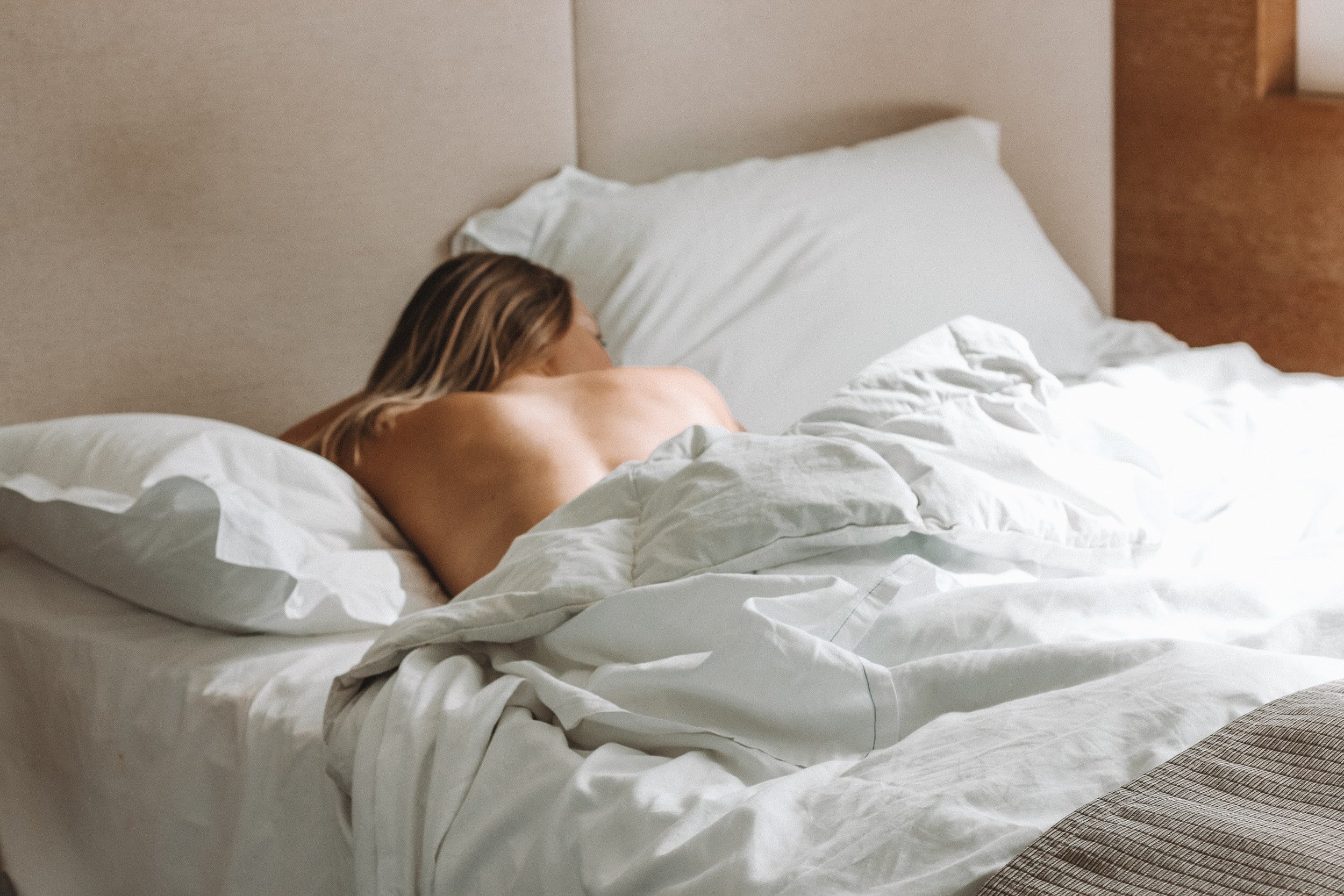
1
We often hear of sleep consultants who help babies and children learn how to get good rest, but it’s less common to hear about this for adults. It’s so interesting! Tell me more about what exactly you do for and with your clients.
That is so true, which is why I am an Adult Sleep Coach. I started as a Pediatric Sleep Consultant, and after receiving a ton of requests from adults to help them with their sleep, I decided to expand my practice to help older people too.
As it goes without saying, adult sleep issues are much more complex than children’s. With children, their sleep issues are typically rectified through behavioral changes, such as teaching them to fall asleep independently. However, with adults, their sleep issues typically require both behavioral and physical interventions.
That said, I use a mind and body approach with my clients. I help them adopt lifestyle, mindset, and behavioral changes to improve their sleep, and I also have them take five functional lab tests to improve their physical health as well. Focusing on building a healthy body and mind will naturally lead to healthy sleep.
2
What do most clients come to you complaining of, and how can someone tell if they need to seek professional help in getting better sleep?
Most of my clients don’t have issues falling asleep. They typically have more problems staying asleep, especially early in the morning – say 3:00/4:00 AM.
If you have experienced sleep issues for more than a month and have tried all of the general tips you can find online, I would recommend seeking professional help. I would start with consulting your doctor to ensure that there isn’t an underlying medical issue, and if everything checks out, invest in a sleep coach.
3
Give us some practical tips to help us get in the headspace for better rest every night—some simple rituals, products, or other practices that can help people who aren’t necessarily experiencing insomnia but have trouble “shutting down” at night.
Many people don’t give themselves enough time to unwind in the evening or time to process their emotions, which can make it challenging to turn off their bodies and minds.
If that sounds like you, I would recommend starting a journaling practice where at the end of your day, but well before you go to bed, you jot down all your worries so that they are out of your head.
Then come up with solutions for the problems that you can control, and visualize releasing the ones you cannot control. Also, give yourself a good two hours every night to do something you enjoy and that you find relaxing. Now that many of us are working from home, it is common for us to work well into the evening and not appropriately wind down.
4
How can we tell if we are dealing with a typical sleep issue—i.e. exhaustion from being up at night with kids—or a more serious problem?
If it takes you longer than 30 minutes to fall asleep or you are awake for more than 10/15 minutes in the middle of the night, that should be a red flag that you need to make some changes.
5
We all know that sleep is important, but we don’t always know how many things it really impacts. Before we let you go, tell us why good sleep really is that important.
Sleep is not just about restoration. Getting adequate sleep is essential for our mental and physical health and overall well-being.
For example, not getting enough sleep impairs our immunity. One study showed that adults who sleep less than 7 hours per night are 3 times more likely to catch a cold. Chronic sleep deprivation can also increase our risk for developing physical ailments, such as diabetes, heart disease, obesity, and some forms of cancer. In addition, when we don’t get enough sleep, our bodies think that there is physical danger present and go into fight-or-flight mode, which can lead to heightened anxiety, moodiness and stress.
It also makes it difficult to think clearly, react quickly and make decisions, which is likely why sleep deprivation impacts productivity. Studies show for every hour we lose of sleep, we lose two hours of productivity the next day.
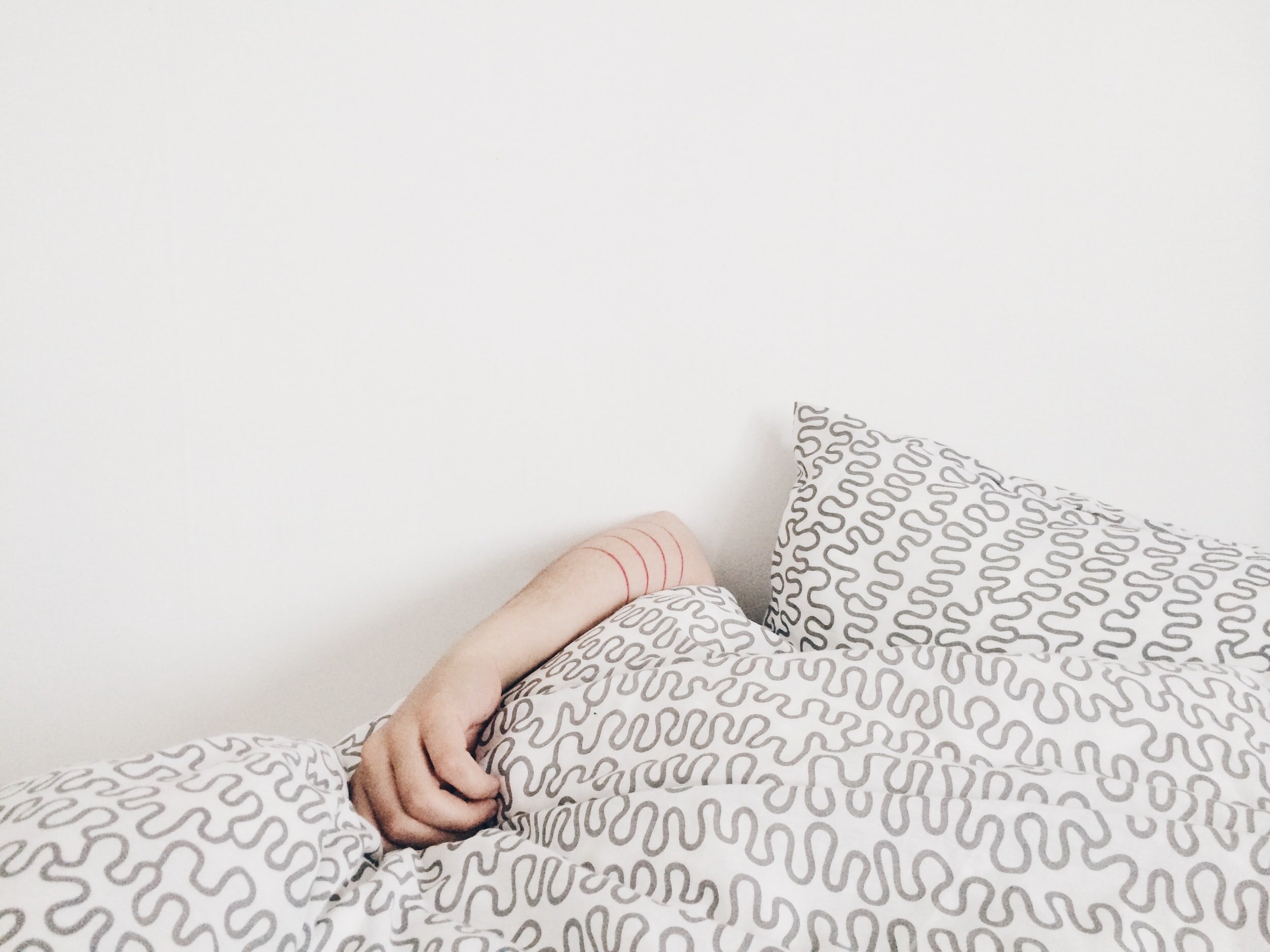
You, sleeping like a (sleep trained) baby, after listening to this week’s podast.
Thanks so much for taking time to answer today’s 5 Questions, Kelly! We’ll see you all on Wednesday at noon EST on Facebook and YouTube with more. Can’t watch live? Listen to the podcast this Thursday!
© 2022 WGT Designed by leche studio
PRIVACY & TERMS
CONNECT
NAVIGATE
Home
Blog
Work With Me
More From Us
Want to be the first to get the latest updates and news?
About
Podcast
Contact